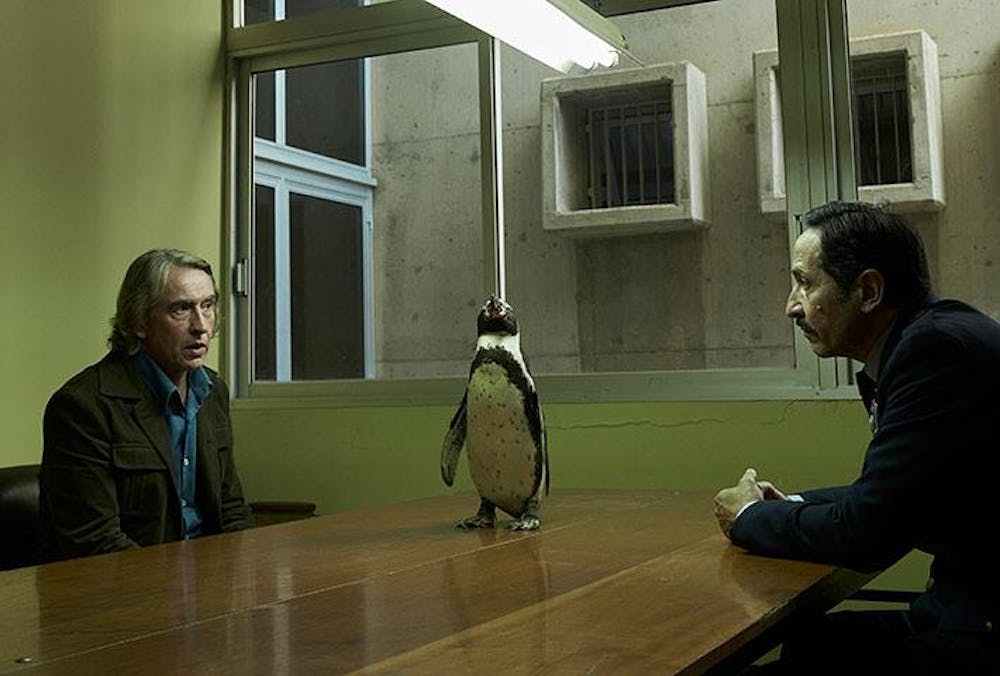Peter Cattaneo’s film “The Penguin Lessons” — based on Tom Michell’s 2015 memoir of the same name — portrays a heartwarming narrative of a man and his penguin. But the film fails to do justice to the violent events of its political backdrop: Argentina’s Dirty War.
The movie begins as Michell (Steve Coogan), an English teacher, arrives at an Argentinian boarding school for the sons of elite families in 1976.
On a venture to Uruguay, Michell rescues a penguin from an oil spill in an attempt to impress a woman he met at the bar. Things don’t work out with the woman, but the penguin imprints on Michell for saving its life.
Despite his best — and funniest — efforts to shake off his new feathered friend, Michell ends up bringing the penguin back to Argentina with him. The penguin, named Juan Salvador, quickly captures the hearts of Michell and his students. Suddenly, everyone starts confiding in Juan Salvador. And to audiences, it honestly feels as if he is listening.
These parts of the movie are dryly comedic and incredibly moving, emphasizing the power of human-animal friendship. But the preciousness of this story — the tale of a deeply lonely man who finds unexpected companionship in a penguin he inadvertently adopts — is complicated by its violent backdrop.
When Sofia (Alfonsina Carrocio), the granddaughter of Michell’s housekeeper (Vivian El Jaber), is kidnapped by the government, Michell and Juan Salvador’s buddy comedy becomes intertwined in the ongoing Dirty War. This violent devastation of Argentina’s society lasted from 1976 to 1983, during which the country’s military dictatorship targeted, kidnapped and tortured political dissidents. The death toll, including those who were disappeared by authorities, ranged from 10,000 to 30,000.
The film calls into question the ethics of using violent histories as the backdrop for a film. In “The Penguin Lessons,” Cattaneo uses the stories of Michell and his students to narrate a nation’s trauma through the lens of the white and the wealthy. The lack of consequences for the movie’s characters is wildly unrealistic compared to the lived experiences of the real-world victims of the Dirty War.
If “The Penguin Lessons” was just a tender narrative about loneliness and guilt, it would be a brilliant success. Coogan delivers a stellar performance — as does, quite frankly, the penguin playing Juan Salvador. The film depicts how pervasive personal sadness can often be remedied by simply feeling heard.
Unfortunately, the mistreatment of history tarnishes what would be an otherwise profoundly moving film, as Cattaneo does not justly depict the suffering of many innocent Argentinians. Some true stories, like Michell’s, are better off left as what they are — nonfiction. Real events in the real lives of real people should not be minimized in favor of a sensational narrative.





